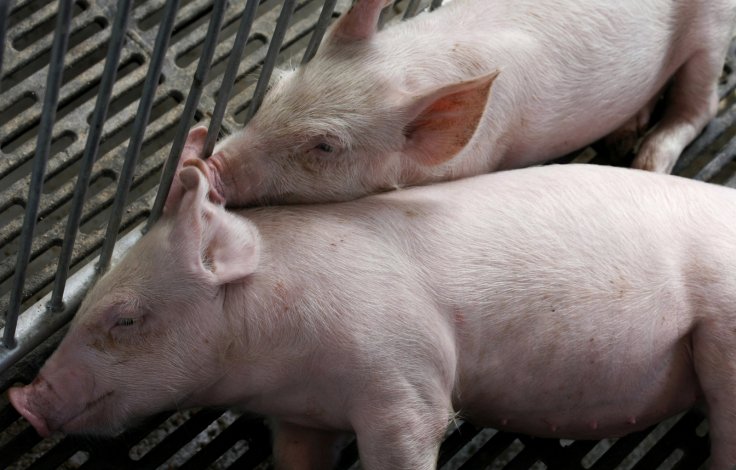
The fast-spreading pig virus has infected nearly one million hogs in China, a major producer of pork in the world. The outbreak of the virus will soon see major repercussions on China's economy and even on global trade.
The Pig 'Ebola' virus, also known as the African swine fever, was first detected in Cambodia. The virus then spread to China, one of the biggest producers of pork in the world. The virus has infected some 400 million pigs, about half the country's swine population, according to Bloomberg.
With the culling of the infected pigs, the population of swine will effectively go down, thus creating dependency on other meat. Australia, which is a major beef provider, could increase the rates of the meat, starting a domino effect in the markets across the world.
In addition to this, the infected meat transported from Japan to Australia was detected at airports, leading to the ban of products and causing a bigger crunch for the pig farmers. The report explains that the livelihood of the pig producers has been affected, which in turn makes them increase the rates of the pork produced.
The swine fever does not affect humans, but in pigs they can spread like wildfire and kill the animals. The virus causes a hemorrhagic illness in pigs which will kill them soon, not unlike the effects of the human Ebola virus. The disease can spread through dirt, interaction between the animals and food and water.
The Federal Agency for the Safety of the Food Chain assured that the food chain will not be affected since the infected meat has been removed completely. However, it was talking about the outbreak of the virus in Belgium.
Reports claim that the virus was introduced in the European Union in 2014 and has been spreading at a speed of 200 kilometres per year, triggering massive losses for the economy. Some of the measures China has taken to stop the spread of the virus include killling one million pigs, banning the movement of healthy hogs outside the infected areas and closure of markets.








